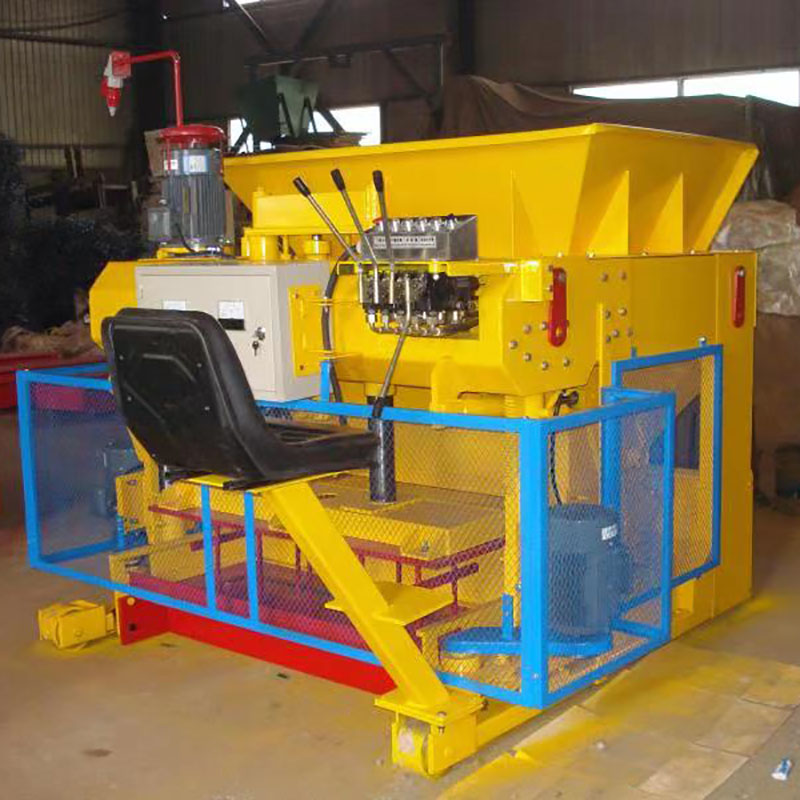
Image source:Aiwei block machine
Introduction
Chinese brick making machines are widely used in the construction industry for the production of bricks, which serve as essential building materials. However, it is crucial to consider the impact of climate conditions on the performance and efficiency of these machines. Climate conditions, including temperature, humidity, and seasonal variations, can significantly affect the operation, production output, and overall performance of brick making machines. This article explores the impact of climate conditions on Chinese brick making machines, discussing the challenges faced and potential solutions to optimize their performance under various environmental conditions.
Temperature and Thermal Effects
Temperature is a critical factor that can affect the performance and operation of brick making machines. Extreme temperatures, whether excessively high or low, can impact different components and processes involved in brick production. Here are some specific effects:
Material Preparation:
Temperature affects the curing time and drying process of clay or other raw materials used in brick production. Extremely high temperatures can accelerate the drying process, leading to rapid evaporation and reduced workability of the materials. Conversely, extremely low temperatures can delay drying and curing, resulting in longer production cycles.
Molding and Shaping:
Temperature variations can influence the consistency and workability of the raw materials during the molding and shaping stages. High temperatures may cause premature drying and cracking, while low temperatures can make the materials rigid and difficult to shape.
Firing and Curing:
The firing process is critical for brick hardening and durability. Extreme temperature fluctuations can affect the firing process, leading to inconsistencies in the quality and strength of the bricks. High temperatures may cause over-firing or warping, while low temperatures may result in under-firing and reduced brick strength.
To mitigate the impact of temperature on brick making machines, Chinese manufacturers can employ insulation techniques, temperature control systems, and adjust the firing and drying parameters to ensure optimal performance under different climate conditions.
Humidity and Moisture Control
Humidity levels and moisture content in the air can significantly affect the brick production process. High humidity can prolong drying and curing times, leading to increased production cycles and reduced efficiency. Moisture absorption by raw materials can also affect the workability and quality of the bricks. On the other hand, low humidity levels can accelerate drying but may result in excessive shrinkage and cracking of the bricks.
To address the challenges associated with humidity, Chinese brick making machine manufacturers can incorporate moisture control mechanisms, such as dehumidifiers and ventilation systems, to regulate the environment inside the production area. Additionally, proper storage and handling of raw materials, along with careful monitoring of moisture content, are essential to maintain consistent quality and performance.
Seasonal Variations
Seasonal changes bring variations in temperature, humidity, and weather conditions, which can impact the production output and efficiency of brick making machines. Understanding these seasonal variations is crucial for optimizing machine performance. Here are some considerations:
Winter:
Cold temperatures and frost can pose challenges to brick making machines. Cold weather affects the drying and curing process, resulting in longer production cycles. Special attention should be given to proper insulation, heating systems, and adjustments in drying and firing parameters to ensure consistent quality and productivity.
Summer:
High temperatures and increased humidity during summer can affect the drying and firing process, leading to rapid evaporation and potential cracking of the bricks. Adequate ventilation, temperature control systems, and adjustments in production parameters are necessary to maintain quality and productivity.
Rainy Season:
The rainy season introduces additional challenges due to increased humidity and moisture content. Special precautions should be taken to protect raw materials from moisture absorption and maintain controlled drying conditions.
Chinese brick making machine manufacturers can develop comprehensive strategies to address seasonal variations by implementing climate control systems, optimizing production parameters, and incorporating appropriate insulation and ventilation mechanisms.
Maintenance and Servicing
Climate conditions can also impact the maintenance and servicing of brick making machines. Extreme temperatures, high humidity, and exposure to harsh weather elements can accelerate wear and tear on machine components. It is crucial to implement regular maintenance schedules, including lubrication, cleaning, and inspection, to ensure the longevity and optimal performance of the machines. Additionally, Chinese manufacturers should consider the selection of materials and coatings that can withstand different climate conditions, preventing corrosion and damage.
Conclusion
The impact of climate conditions on Chinese brick making machines cannot be overlooked. Temperature, humidity, and seasonal variations can significantly influence the production output, quality, and efficiency of these machines. Chinese manufacturers need to consider the challenges posed by extreme temperatures, moisture control, and seasonal variations and develop appropriate solutions. This includes incorporating insulation, temperature control systems, moisture control mechanisms, and implementing maintenance and servicing schedules to optimize machine performance under varying climate conditions. By addressing these challenges, Chinese brick making machine manufacturers can ensure consistent production, enhance the durability and quality of the bricks, and meet the demands of the construction industry in diverse geographical locations.
